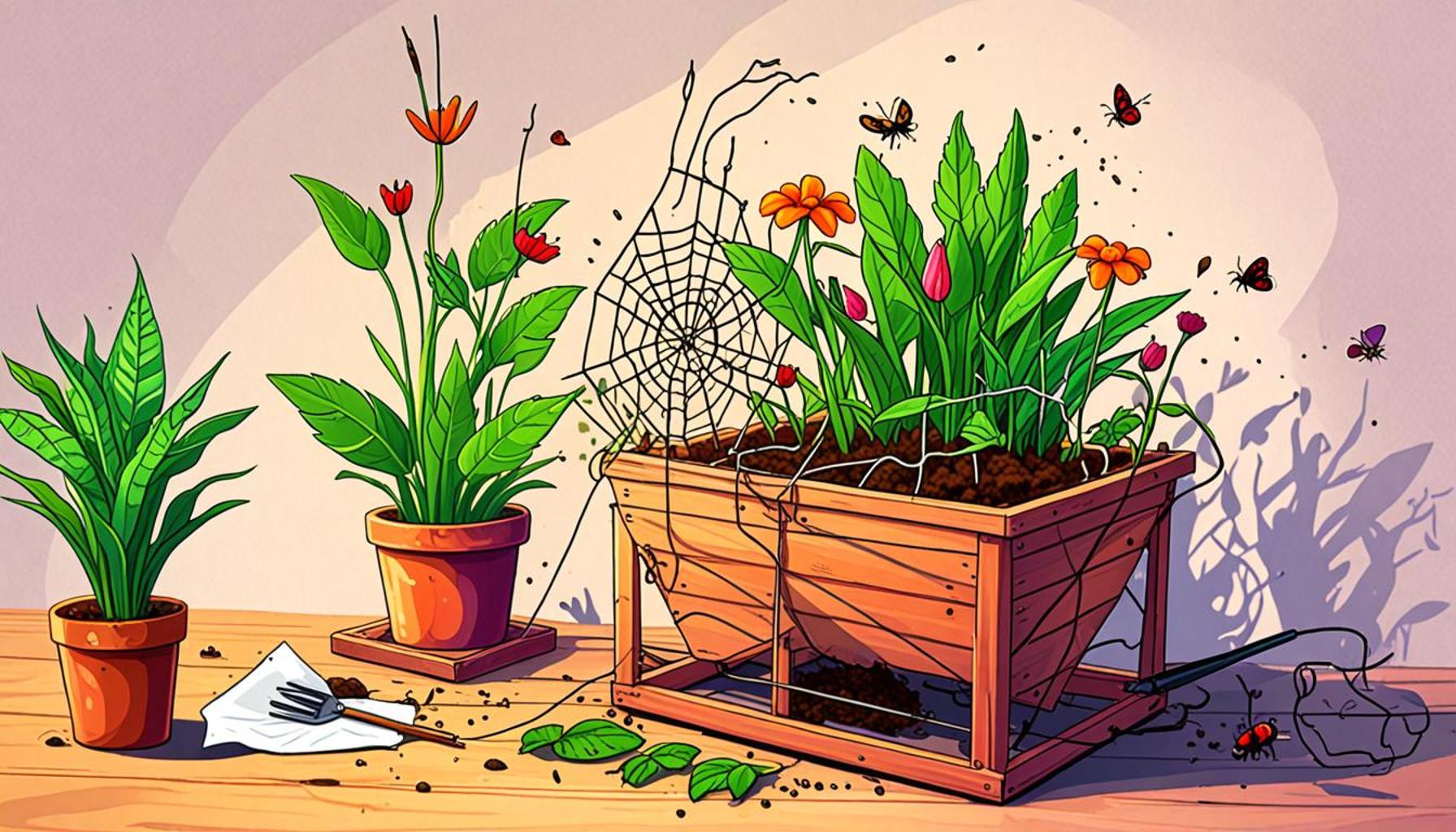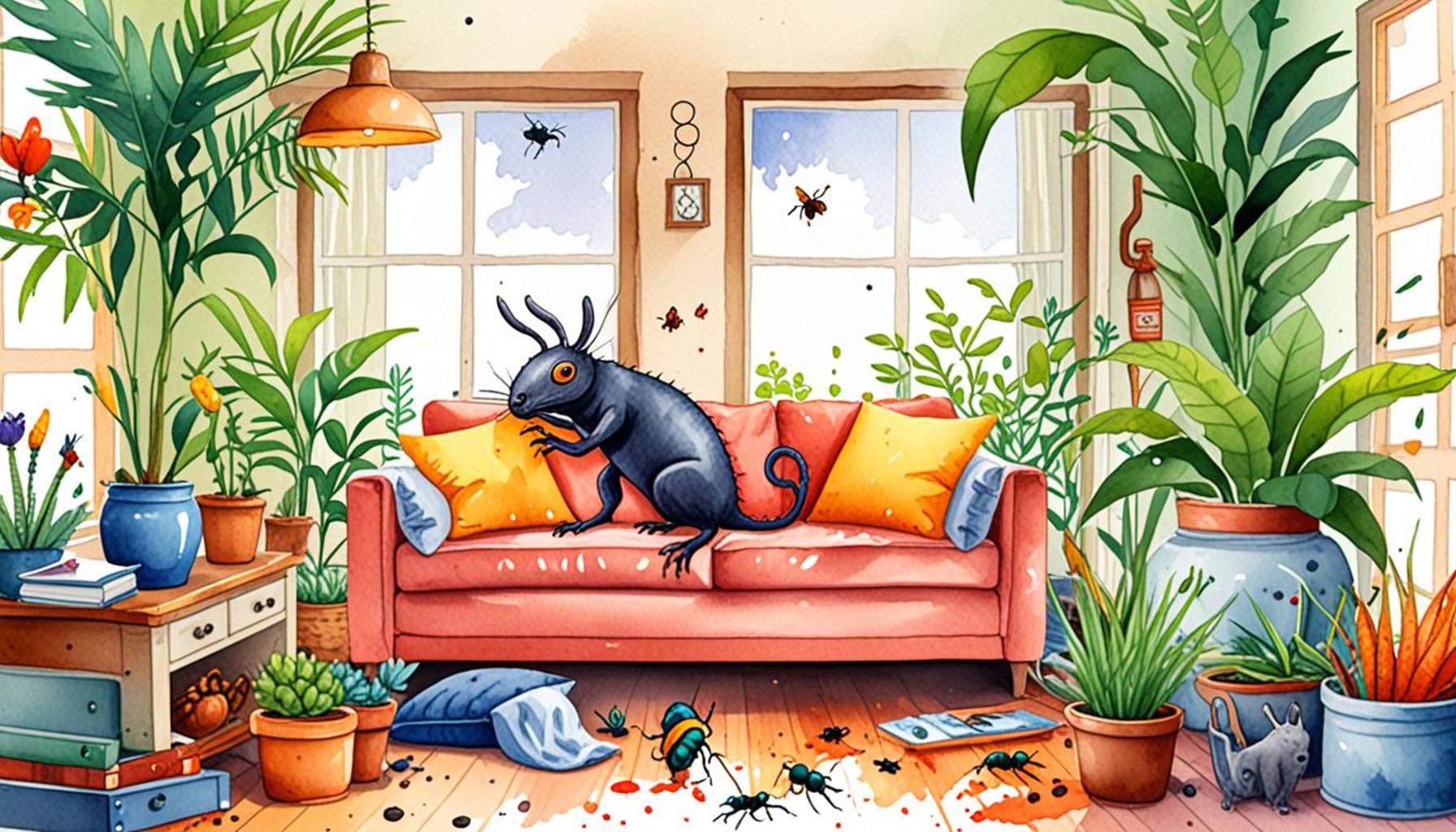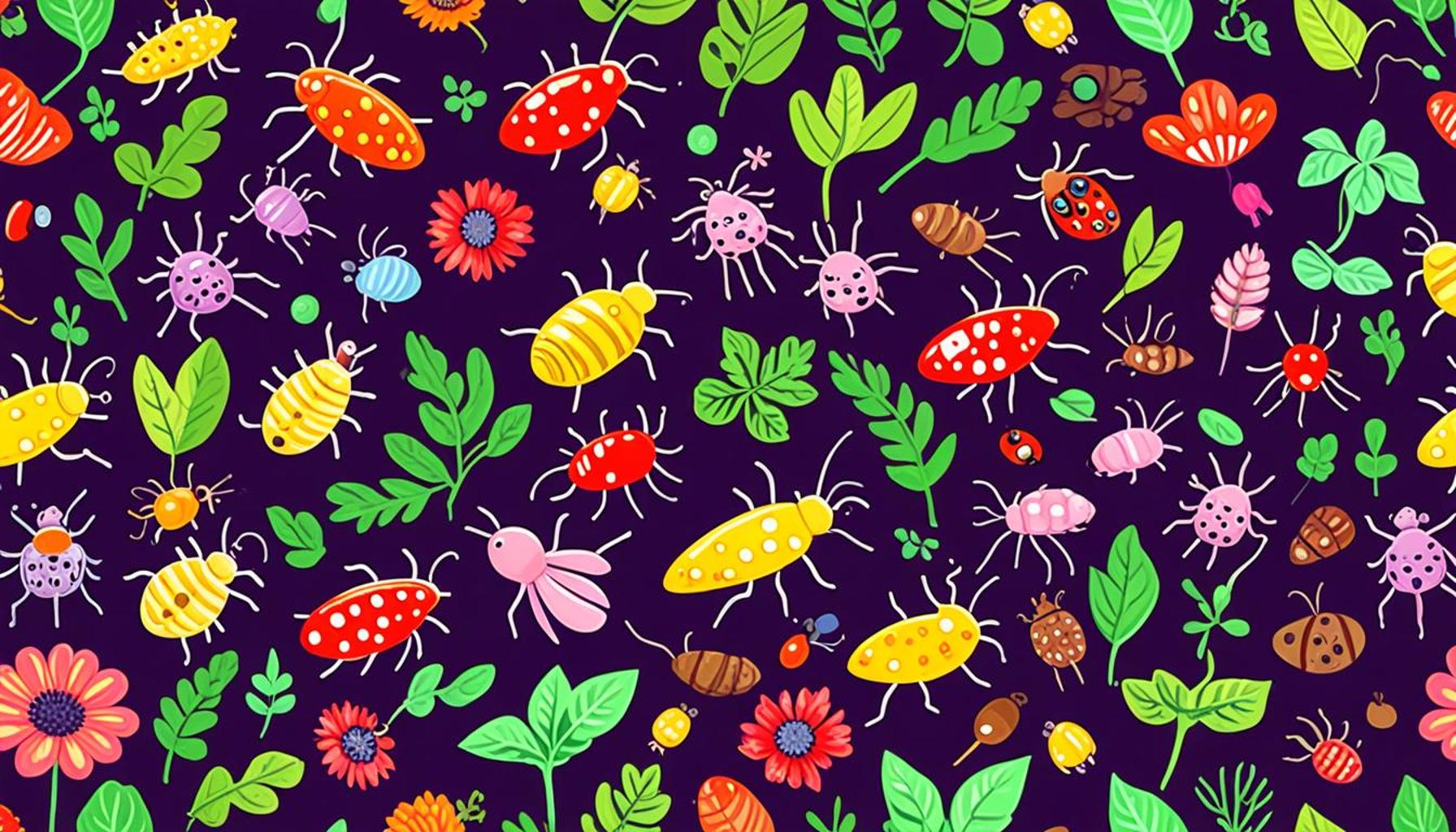How to Use Essential Oils as Natural Insect Repellents in Home Gardens
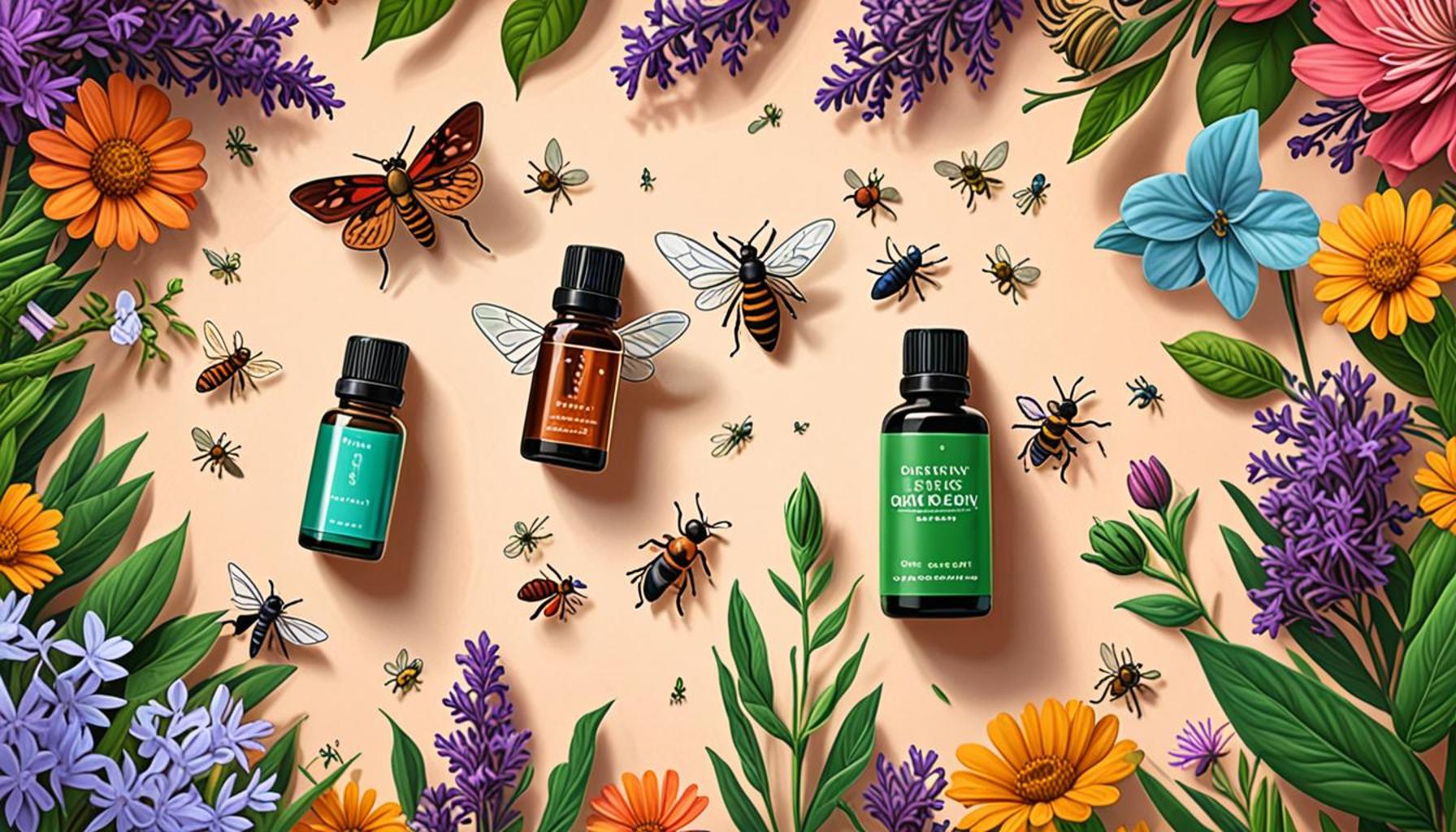
The Benefits of Essential Oils in Gardening
Creating a beautiful and thriving home garden involves much more than simply planting seeds and watering plants. One of the gardener’s greatest adversaries is the threat of insect pests, which can swiftly turn your green paradise into a battlefield, munching away at your hard work and dedication. Fortunately, essential oils offer a natural solution to repel these unwanted visitors, providing both effective protection and environmental benefits.
The Allure of Essential Oils
These aromatic oils—extracted from various plants—do not merely provide pleasing scents but also possess potent properties that can deter pests. Harnessing the power of nature can be an effective and safe way to safeguard your plants. Here’s a deeper look at why essential oils are beneficial:
- Non-Toxic: Unlike chemical pesticides that can pose health risks to humans and pets, essential oils are generally regarded as safe when used correctly. For instance, a few drops of peppermint oil diluted in water can effectively repel ants and spiders without introducing harmful substances into your home or garden.
- Environmentally Friendly: Essential oils support a sustainable gardening approach by minimizing chemical runoff, which can contaminate local water sources. This makes them a wonderful choice for eco-conscious gardeners who wish to coexist harmoniously with nature.
- Versatile: Many essential oils can target a variety of pests, making them efficient and multipurpose. For example, both lavender and citronella are known for their ability to keep mosquitoes at bay while also deterring other common garden pests.
Exploring Popular Essential Oils
Exploring the available options can be an exciting journey for any gardening enthusiast. Using essential oils such as peppermint, lavender, and citronella is an effective way to enhance your gardening regimen. Peppermint is renowned not only for its invigorating scent but also for its ability to repel aphids and beetles. Lavender, on the other hand, adds a beautiful bloom to your garden while keeping moths and fleas at bay. Citronella, famously known for warding off mosquitoes, can also be effective against other annoying insects.
By seamlessly incorporating these natural alternatives, gardeners can protect their plants while promoting a healthier living environment. The delightful scents of these oils can also enhance the overall experience of gardening, making it more enjoyable for both the gardener and visitors.
Moving Forward with Essential Oils in Your Garden
In the following sections, we will dive deeper into how to use essential oils effectively in your home garden. From creating DIY pest repellents to understanding the best methods for application, you will gain insights that will empower you to cultivate a flourishing garden free of pesky invaders. Prepare to discover a world where your garden thrives, and insect troubles fade away, all while embracing a more organic approach to gardening!
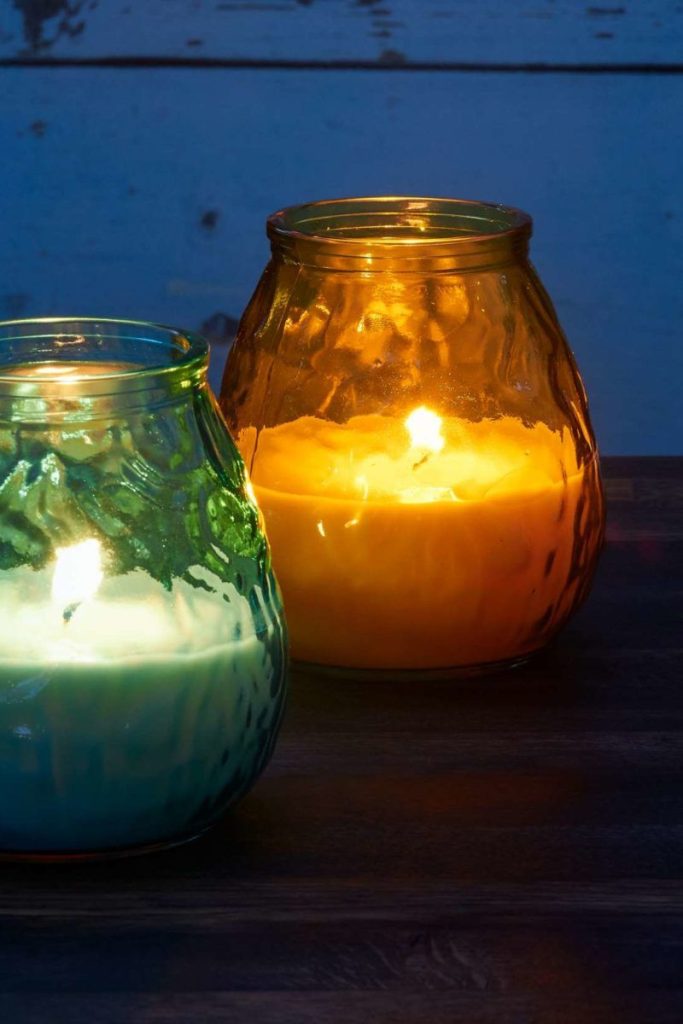
DISCOVER MORE: Click here to learn how soil cover can enhance your gardening skills
Understanding How Essential Oils Work as Insect Repellents
Before unleashing the potential of essential oils in your home garden, it’s important to understand how these powerful natural substances work to keep pests at bay. The protective qualities of essential oils stem from their unique chemical components, which possess characteristics that insects find unappealing. Knowing how these oils interact with pests can help you make informed choices for effective pest control.
The Science Behind Essential Oils
Essential oils contain a variety of compounds that can disrupt an insect’s sensory perception, effectively masking scent trails and making it difficult for them to locate food or mates. For example, oils like tea tree and eucalyptus are rich in terpenes and phenolics, which act as volatile repellents. When these oils are sprayed in the garden, they emit strong scents that deter insects like mosquitoes, flies, and beetles.
Another engaging aspect of essential oils is their ability to repel insects by mimicking natural deterrents found in plants. For example, citronella oil, extracted from lemongrass, has been traditionally used to ward off mosquitoes due to its strong aroma that mosquitoes cannot stand. Understanding the specific actions of these oils can guide you in selecting the best options for your garden’s requirements.
Choosing the Right Essential Oils for Your Garden
With a plethora of essential oils available, knowing which ones to use can feel overwhelming. However, some essential oils stand out for their insect-repellent properties and are particularly effective in the context of home gardens. Here are a few popular choices:
- Peppermint Oil: Excellent for deterring ants, spiders, and aphids, peppermint oil not only masks the scent trails that guide these pests but also creates an inhospitable environment due to its sharp scent.
- Lavender Oil: Not only does lavender bring a soothing fragrance, but it also repels moths, fleas, and mosquitoes. This makes it a dual-threat in the garden!
- Citronella Oil: Widely recognized for its effectiveness against mosquitoes, citronella oil can also deter other pests such as flies and beetles, making it a great companion for various plants.
- Thyme Oil: This exceptionally fragrant oil is effective against a range of pests, including aphids, whiteflies, and spider mites. Plus, it’s a wonderful addition to culinary dishes!
By selecting the right essential oils for your specific garden challenges, you can tailor a pest control strategy that is not only effective but also pleasant to the senses. This enables you to enjoy the beauty of your garden without the intrusive presence of unwanted insects.
Preparing for Essential Oil Application
Once you’ve chosen your essential oils, the next step is to prepare them for application. Whether you decide to create your own insect-repellent spray or add the oils to gardening routines such as composting, the approach you take will undoubtedly influence the outcome of your insect management efforts.
In the following sections, we will explore various methods of using essential oils in your garden, ensuring that your plants remain thriving and pest-free. Get ready to learn practical tips and innovative recipes for incorporating these powerful oils into your gardening practices!
Exploring Essential Oils for Insect Repellence
Using essential oils as natural insect repellents in home gardens offers numerous advantages that extend beyond mere pest control. As we delve deeper into the topic, it becomes apparent that these potent plant extracts not only keep unwanted insects at bay but also promote a healthier garden ecosystem.1. Versatility of Use: Essential oils can be utilized in various ways, making them an adaptable solution for any gardening style. They can be diffused in the air, used in spray solutions, or even applied as a topical treatment on plants. For instance, combining oils like peppermint, lavender, and citronella in a spray can create an effective barrier against common pests such as mosquitoes and aphids.2. Eco-Friendly Solutions: One of the most significant benefits of using essential oils is their eco-friendliness. Unlike chemical pesticides that can harm beneficial insects and the surrounding environment, essential oils provide a natural alternative without causing adverse effects. This aspect not only preserves biodiversity in your garden but also aligns with sustainable gardening practices.
Choosing the Right Oils
When considering essential oils for your garden, it’s important to select the right ones based on the specific pests you want to deter. For example, tea tree oil is known for its antifungal properties as well as its pest-repelling capabilities, making it ideal for a variety of garden issues. Additionally, oils like eucalyptus and rosemary can effectively ward off numerous insect species.It’s essential to blend the oils correctly and to consider the concentration, as too high a concentration can harm plants instead of helping them. Regular application and persistence are key, as the effects of essential oils may gradually dissipate due to weather conditions.As you begin to incorporate essential oils into your pest control strategy, your garden can not only thrive but also benefit from a more holistic approach to gardening. Stay tuned for more insight into specific recipes and applications that harness the power of essential oils effectively.
DISCOVER MORE: Click here for tips on harvesting at the perfect moment
Methods of Applying Essential Oils in Your Garden
Once you’re equipped with the right essential oils, the next crucial step is to learn effective methods for applying them in your home garden. Different techniques can enhance the efficacy of these natural insect repellents, allowing you to create a protective barrier around your plants that doesn’t compromise their health or aesthetics.
Creating Essential Oil Sprays
One of the simplest and most effective ways to use essential oils is by creating a spray. This method allows for easy application and ensures even distribution across your garden. Here’s a straightforward recipe to get started:
- 1 cup of water
- 10-15 drops of your chosen essential oil (such as peppermint, lavender, or citronella)
- 1 teaspoon of mild soap (castile soap works well)
Combine the ingredients in a spray bottle, shake gently, and then spray onto affected plants, focusing on the underside of leaves where insects often reside. This mixture not only repels pests but also helps to prevent future infestations. Remember to reapply every few days, especially after rain or heavy watering, as essential oils can dissipate quickly.
Diffusing Essential Oils in the Garden
An innovative method that many gardeners are adopting is diffusing essential oils directly in the garden. Utilizing an essential oil diffuser, specifically designed for outdoor use, can create a cloud of protective scent around your garden area. Consider mixing oils such as lemongrass or orange to maximize the deterrent effect against common garden pests. This method can also enhance your outdoor environment, creating an inviting aroma for you and your guests.
Incorporating Essential Oils in Companion Planting
Another strategic approach to using essential oils in your garden is through companion planting. This involves planting herbs or flowers that naturally repel pests when planted alongside vulnerable crops. For instance, planting marigolds or clusters of basil can serve as natural repellents thanks to the volatile oils they release. You can further enhance this strategy by applying essential oils from these plants, promoting a multi-layered pest control system.
Making Essential Oil-Infused Mulch
Infusing mulch with essential oils adds an additional layer of protection while beautifying your garden. To create an essential oil-infused mulch, simply mix your preferred oils into your mulch material before applying it around your plants. This not only enriches the soil with natural oils but also releases a scent that deters insects without harming beneficial insects such as bees and butterflies.
Caution and Considerations
While utilizing essential oils as natural insect repellents offers a plethora of benefits, it’s essential to approach their use with care. Some oils can be potent and may irritate plants if overly concentrated. Always conduct a patch test by applying a small amount to a single leaf or plant to observe any adverse reactions.
In addition, consider the local ecosystem: while some oils are fantastic at repelling harmful insects, they may also deter beneficial insects that play a crucial role in pollination and natural pest control. Striking a balance is key to maintaining a thriving and healthy garden.
By employing these diverse methods for applying essential oils, you are setting a foundation for a naturally vibrant garden environment—one that simultaneously protects your plants and aligns with eco-friendly practices.
DIVE DEEPER: Click here to learn about companion plants
Conclusion
As we’ve explored, using essential oils as natural insect repellents in your home garden presents an intriguing and effective alternative to chemical pesticides. The versatility of essential oils extends from creating simple sprays to the innovative methods of diffusing and companion planting, all helping to foster a healthier garden ecosystem. By harnessing the potent properties of oils like lavender, peppermint, and citronella, gardeners can tailor their approaches to suit various garden needs while minimizing environmental impact.
Importantly, understanding the balance between repelling unwanted pests and protecting beneficial insects is key to achieving a flourishing garden. This awareness encourages an ecosystem that not only wards off harmful insects but also supports vital pollinators. Moreover, the safe application of essential oils ensures that your plants remain vibrant and thriving—without the risk of harsh chemical residues.
In conclusion, the integration of essential oils into your gardening routine opens the door to an exciting realm of natural pest control. Whether you choose to create your own essential oil sprays, diffuse enticing aromas, or incorporate them into your mulching practices, the possibilities are vast. Embrace these practices to promote an organic and sustainable approach to gardening that benefits both you and the environment. As you venture forth, keep experimenting and discovering the best combinations for your garden, and unlock the full potential of your green space using nature’s powerful gifts.
